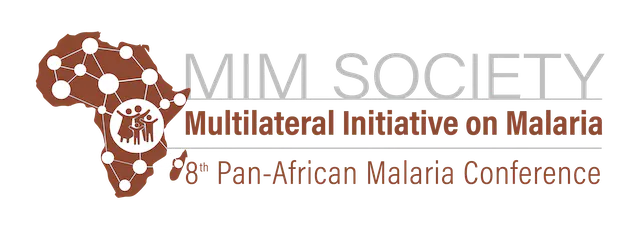Press Conference: Prior to the conference kick-off, a press conference is scheduled for Sunday, April 21st at 3:30 PM in AD 10 at the Kigali Convention Center (KCC).
Press Release: The official press release is available here.
World Malaria Day at MIM 2024
- Car Free Day: Africa Walks Against Malaria: Sunday, April 21st at 7AM (Local Time). Find more details here
- Blood Donation and malaria services exhibition: On Sunday, April 21st, during the Car Free Day, there will be blood collection buses available to facilitate blood donation for malaria patients. Partners involved in the fight against malaria will also be exhibiting their services and products. For more details, please visit this page here
- Kigali Convention Centre (KCC) Dome Illumination: The KCC dome will glow in vibrant blue, symbolizing the commemoration of the World Malaria Day (WMD).
-
Live stream of WMD celebration at MIM 2024:
- Time 3:30 PM (local Time)
- Link: https://youtube.com/live/Rp30iogrn2o?feature=share
Media Working Room: For your media needs during the conference days, visit Mezzanine 3 at the Kigali Convention Center (KCC).
Social Media Toolkit: Access to social media messages and graphics, including World Malaria Day, can be found here
Conference Photo Gallery: Explore the conference photo gallery here
Media WhatsApp Group: Stay informed with the latest updates through our WhatsApp group. To join, add this number: +250788606072.
Media Registration: For media registration, please get in touch with Mr. Julien M. NIYINGABIRA. You can reach him via email at julien.niyingabira@rbc.gov.rw or by phone at +250788606072.
Media Contact: Reach out to Mr. Julien NIYINGABIRA at the Rwanda Health Communication Centre:You can reach him via email at julien.niyingabira@rbc.gov.rw or by phone at +250788606072.
Conference Overview
The Multilateral Initiative on Malaria (MIM) Society 8th Pan-African Malaria Conference is organized jointly by the MIM Society, the Ministry of Health Rwanda, and the Rwanda Biomedical Centre (RBC).
Theme of the conference: “Grassroots Mobilization to End Malaria: Invest, Innovate & Integrate”. The conference provides a vital platform for exchange of perspectives and collaborations on community-driven efforts, cutting-edge research, and advancements in malaria prevention, treatment, and control across Africa.
World Malaria Day: The conference celebrates the World Malaria Day on April 25th, providing a strategic platform to raise global awareness about malaria, amplify messages and honor those dedicated in the fight against malaria.
Participation: The conference is expected to draw participants globally from various sectors, including but not limited to scientists, communities, policymakers, international organizations, civil society organizations, and the private sector.
Conference Content
The conference will include plenary sessions, panel discussions, and scientific sessions featuring symposia, abstract presentations, and exhibitions. These sessions will focus on critical areas of malaria research and control, including key thematic topics such as parasite and systems biology, pathogenesis, health economics, malaria genomics, epidemiology, drug efficacy, immunology, vector control, and more.
Global Malaria Status
According to the WHO World Malaria Report 2023, globally in the year 2022, there were an estimated 249 million malaria cases (an increase of five million over 2021) and 608,000 malaria deaths in 85 countries.
The WHO African Region carries a disproportionately high share of the global malaria burden. In 2022, the Region was home to 94% of malaria cases (233 million) and 95% (580 000) of malaria deaths. Children under 5 accounted for about 80% of all malaria deaths in the Region.
Sources: World Malaria Report 2023; WHO- Malaria; WHO- Africa
About Malaria
Malaria is mostly found in tropical countries and is spread to humans by some types of mosquitoes. Malaria infection is caused by parasite and not contagious from people to people.
Malaria can be a life-threatening disease, nonetheless it is preventable and curable.
Malaria Symptoms: The most common symptoms of malaria are fever, headache and chills and may start within 10-15 days of bitten by an infected mosquito.
Test & Treatment: getting early test and treatment is highly important to stop the infections from getting worse.
The most vulnerable groups of people for malaria include persons with no or little immunity against the disease; young children, who have not yet developed partial immunity to malaria; pregnant women, travelers, and migrants who may be susceptible to the disease due to movement from low-risk to high-risk area.
Sources: WHO: Fact SheetsSocioeconomic Burden of Malaria
Malaria imposes significant social and economic costs. When individuals are sick with malaria, their daily lives are disrupted. They may be absent from social activities, skip school or productive days at work.
According to World Malaria Report 2023 (P.57), “Malaria is a leading cause of health care spending in endemic and high-burden countries” and “without adequate financial protection, the costs involved may be sufficiently high to affect an individual’s decision to seek care”. Increased cost of health care also impacts access to health care and treatment- “Elevated levels of out-of-pocket health care spending can result in reduced access to health care, heightened poverty levels and increased socioeconomic disparities – factors that further deepen the health and socioeconomic burden of malaria”.
Governments also spend significant resources to combat malaria through prevention, treatment, and eradication efforts. These initiatives involve building infrastructure, implementing public health interventions, conducting insecticide spraying campaigns, and distributing insecticide-treated nets among others.
Sources: Economic Cost of Malaria; World Malaria Report 2023 ; Malaria’s Impact Worldwide ; The Economic Burden of Malaria: A Systematic ReviewChallenges of Curbing Malaria
Limited resources and socio-economic instability affect malaria control activities. Notably, in adequate financing to invest on malaria prevention and treatment activities; humanitarian crisis and climate change also hamper malaria response efforts.
Threats of resistance: some malaria transmitting mosquitos have become resistant to older insecticides sprayed to prevent transmission. Similarly, emergence of antimalaria drug resistance poses a critical concern in the fight against malaria.
Sources: WHO: Factsheet; World Malaria Report 2023; WHO: Strategy to respond to antimalarial drug resistance in Africa;Conference Program Highlights
For latest and detailed conference program,including the agenda, abstracts, symposia, and exhibition details, visit the website here
